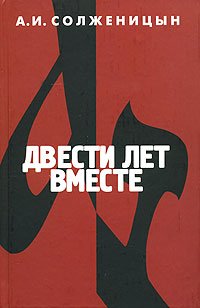
Julian presiding at a conference of Sectarians
(Edward Armitage, 1875)
In the dim atrium, students were again gathered, talking strenuously all at once as students will. When they saw us enter, they fell silent. I daresay the sight of me alarmed them. But Prohaeresius told them I was to be treated as just another student.
“Not that he is, of course, in spite of the beard and the old clothes.” They laughed. “He is different from us.” I was about to say that even members of Constantine’s family have some (if not much) resemblance to the human family, when he said: “He is a true philosopher. He has chosen to be what we must be.” This was accepted with some delight. Not until a day later did the irony of what he said occur to me.
Macrina took me by the arm and said, “You must meet Priscus. He is the most disagreeable man in Athens.”
Priscus sat on a stool, surrounded by students. He is a lean, cold-faced man, nearly as tall as Prohaeresius. He rose when we approached him and murmured, “Welcome.” I was pleased to meet this great teacher whom I had long known by reputation, for he is as famous for his wit as he is for his ambiguities. He is also completely without enthusiasm, which right off made him a good foil for me since I am often excited by the trivial. We were friends from the start. He is with me now in Persia.
“Try to pin him down,” said Macrina, turning to me, her hand on Priscus’s lean arm as though presenting him to me for a bout of wrestling, “on anything. We think of him as the master of evasion. He never argues.”
With a look of distaste which I have come to know so well (and fear when it is turned on me!), Priscus got his arm loose from Macrina’s grasp. “Why should I argue? I know what I know. And others are always quick to tell me what they know, or think they know. There is no need for confrontation.”
“But surely you must find that new thoughts occur in argument?” I was naïve, of course; I pressed him hard. “After all, Socrates led others to wisdom through argument and conversation.”
“The two are not quite the same thing. I teach through conversation, or try to. But argument is a vice in this city. Glib men can almost always score points off wiser but less well-spoken men. Nowadays style in speaking is everything; content nothing. Most of the Sophists are actors—worse, they are lawyers. And the young men pay to hear them perform, like street singers.”
“Priscus attacks me!” Prohaeresius had joined us. He was amused at what was obviously an old discussion.
“You know what I think.” Priscus was severe. “You are the worst of the lot because you are the best performer.” He turned to me. “He is so eloquent that every Sophist in Athens hates him.”
“All but you,” observed Macrina.
Priscus ignored her. “A few years ago his confreres decided that he was too popular. So they bribed the proconsul…”
“Careful,” said Macrina. “We must not speak of bribed officials in front of what may one day be the greatest official of them all.”
“Bribed the proconsul,” said Priscus as though she had not spoken, “to exile our host. This was done. But then the proconsul retired and was succeeded by a younger man who was so indignant at what had happened that he allowed Prohaeresius to return. But the Sophists did not give up easily. They continued to plot against their master. So the proconsul held a meeting at the University…”
“At my uncle’s suggestion.”
Prohaeresius was amused. “Macrina allows us no secrets. Yes, I put him up to it. I wanted to get my enemies all together in one place in order that I might…”
“Dispatch them,” said Macrina.
“Win them,” said her uncle.
“Beat them,” said Macrina.
Priscus continued. “It was a formidable display. Everyone was gathered in the main hall of the University. Friends were nervous. Enemies were active. The proconsul arrived. He took charge of the assembly. He announced that a theme should be proposed for Prohaeresius to argue. Any theme. The assembly could choose it. At first no one said a word.”
“Until my uncle saw two of his very worst enemies skulking in the back. He called on them to set a theme. They tried to escape, but the proconsul ordered his guards to bring them back.”
Priscus looked dour indeed. “It was the guards, I suggest, that won the day for virtue.”
“The honeyed tongue of Priscus!” The old man laughed. “You may be right. Though I suspect the bad judgment of the enemy helped most, for they set me a theme of remarkable obscenity and limited scope.”
“Which side of a woman is the most pleasing, front or back.” Macrina grinned.
“But he accepted the challenge,” said Priscus. “He spoke with such effectiveness that the audience maintained a Pythagorean silence.”
“He also insisted that shorthand reporters from the law court take down every word.” In an oblique way, Macrina was proud of her uncle’s prowess. “He also insisted there be no applause.”
“It was a memorable speech,” Priscus continued. “First, he presented the argument in all its particulars. Then he took one side… the front. After an hour, he said, ‘Now observe carefully whether I remember all the arguments that I used earlier.’ He then repeated the speech in all its intricate detail, only this time he took the opposite point of view… the back. In spite of the proconsul’s order, applause filled the hall. It was the greatest triumph of memory and eloquence heard in our time.”
“And…?” Prohaeresius knew that Priscus would not finish without a sudden twist to the knife.
“And? Your enemies were completely routed and where before they despised you, now they hate you.” Priscus turned to me. “They nearly had his life the next year. They still plot against him.”
“Which proves?” Prohaeresius was as curious as I to learn what Priscus was up to.
“That victories in argument are useless. They are showy. What is spoken always causes more anger than any silence. Debate of this sort convinces no one. Aside from the jealousies such a victory arouses, there is the problem of the vanquished. I speak now of philosophers. The one who is defeated, even if he realizes at last that he is fighting truth, suffers from having been publicly proved wrong. He then becomes savage and is apt to end by hating philosophy. I would prefer not to lose anyone for civilization.”
“Well said,” Prohaeresius agreed.
“Or, perhaps,” said the devilish Macrina, “you yourself don’t want to lose an argument, knowing that you are apt to turn bitter as a result of public humiliation. Oh, Priscus, you are vain! You won’t compete for fear you might not win. As it is, none of us knows how wise you are. Silence is his legend, Prince. And he is all the greater for that. Each time Prohaeresius speaks he limits himself, for words limit everything, being themselves limited. That’s why Priscus is wisest of all: silence cannot be judged. Silence masks all things or no thing. Only Priscus can tell us what his silence conceals, but since he won’t, we suspect him great.”
Priscus did not answer. Macrina was the only woman I have ever known who could speak with so many odd twistings and turnings. Irony is not usual to woman, but then Macrina was not in any way usual. Before we had an opportunity to see if Priscus could answer her, we were interrupted by the arrival of my bodyguard, as well as an officer of the proconsul’s staff. Word had already spread throughout Athens that I was at the house of Prohaeresius. I was again taken into custody.








